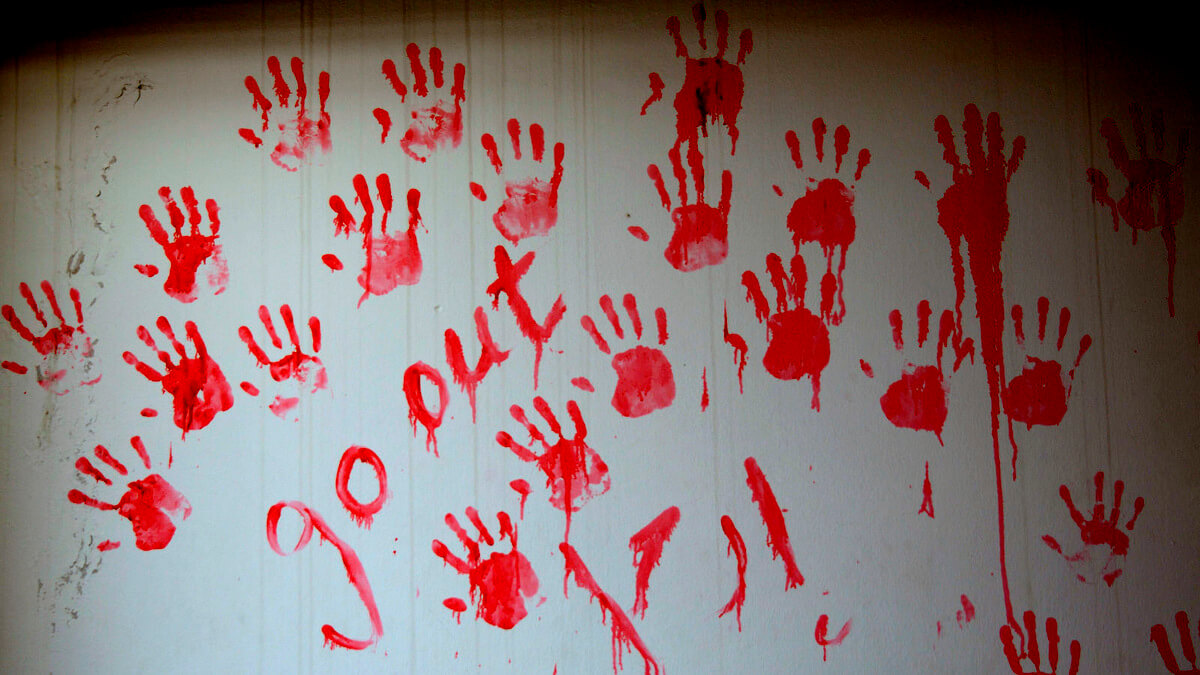UNRWA, the United Nations Relief and Work Agency for Palestine Refugees, was established in December 1949 by United Nations General Assembly Resolution 302 to address the basic humanitarian needs of the hundreds of thousands of Palestinians who became refugees in the first Arab-Israeli war in 1948.
As its name reveals, UNRWA’s mission was centered on providing relief rations, basic healthcare, education and employment opportunities for the refugees who lost all of their livelihood. Underlying UNRWA’s establishment was the goal to integrate refugees into the neighboring Arab host countries, so as to diffuse tensions and promote regional peace and stability.
Motivated by political objectives, the United States and Britain have been the biggest contributors to UNRWA’s budget. This has remained the case until recently when U.S. President Donald Trump announced in February of this year his decision to drastically cut U.S. contributions to UNRWA. Over the years, these two big powers saw in this humanitarian agency an effective vehicle for containing frustration and despair among the refugees.
Indeed, in spite of some of its shortcomings, UNRWA has been able to provide badly needed services, particularly for destitute refugee families. UNRWA became an important apparatus of employment for many skilled refugees.
Until it began in the past few years to introduce reductions in its services, UNRWA’s schools once provided the best education to be had in their communities, employing the most talented Palestinian teachers and graduating very successful students who excelled in various fields of knowledge and expertise.
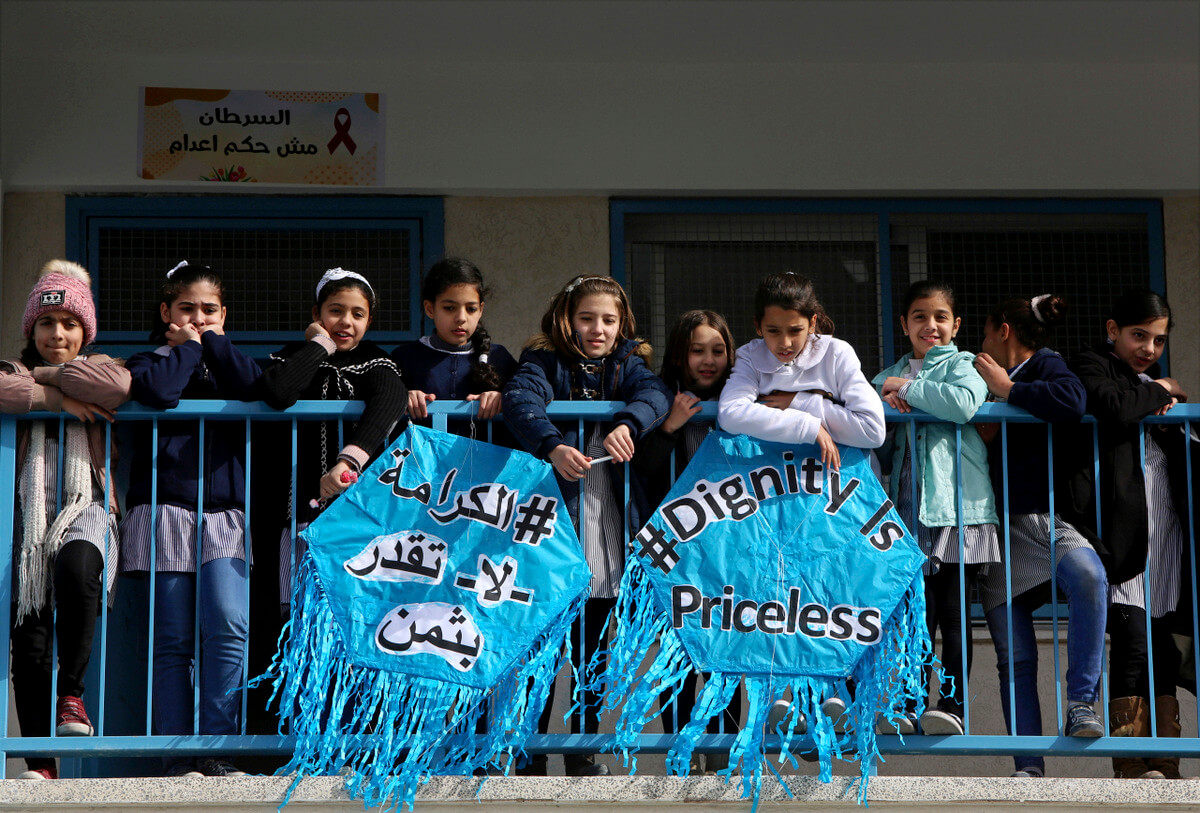
In an attempt to pressure the Palestinian people to accept his “deal of the century,” Trump decided to drastically cut the annual U.S. contribution to UNRWA from about $350 million to $65 million and, against all advice from his former Secretary of State Rex Tillerson and Defense Secretary James Mattis, he pressured some other countries, including Britain and Australia, to reduce their contributions as well.
The first impact of Trump’s drastic cuts
UNRWA, which had already been struggling financially to meet its increasing demands, owing to the influx of more Palestinian refugees as a result of the Syrian crisis, found its operations severely hampered at a most critical time for so many Palestinian refugees. Supposedly compelled by the financial constraints, UNRWA recently decided to further shrink most of its modest services. Then, more worrisome for the refugees, it dismissed more than 1,000 Palestinian refugee employees from work in the Gaza, which has been lingering under siege for about 12 years.
Gaza, where unemployment has exceeded 80 percent, is considered one of the most troubled places on earth for human survival. Due to the tight siege, clean water is very scarce; Gazans get fewer than four hours of electricity per day; and the healthcare system has practically crumbled, as medical supplies are not coming in. On the whole, people are tormented by, on the one hand, the ongoing contest of powers between Hamas, which has unilaterally controlled the strip since 2007, and the Palestinian Authority, and, on the other, the Israeli occupation that dominates the airspace and sea as well as all entry points by land.
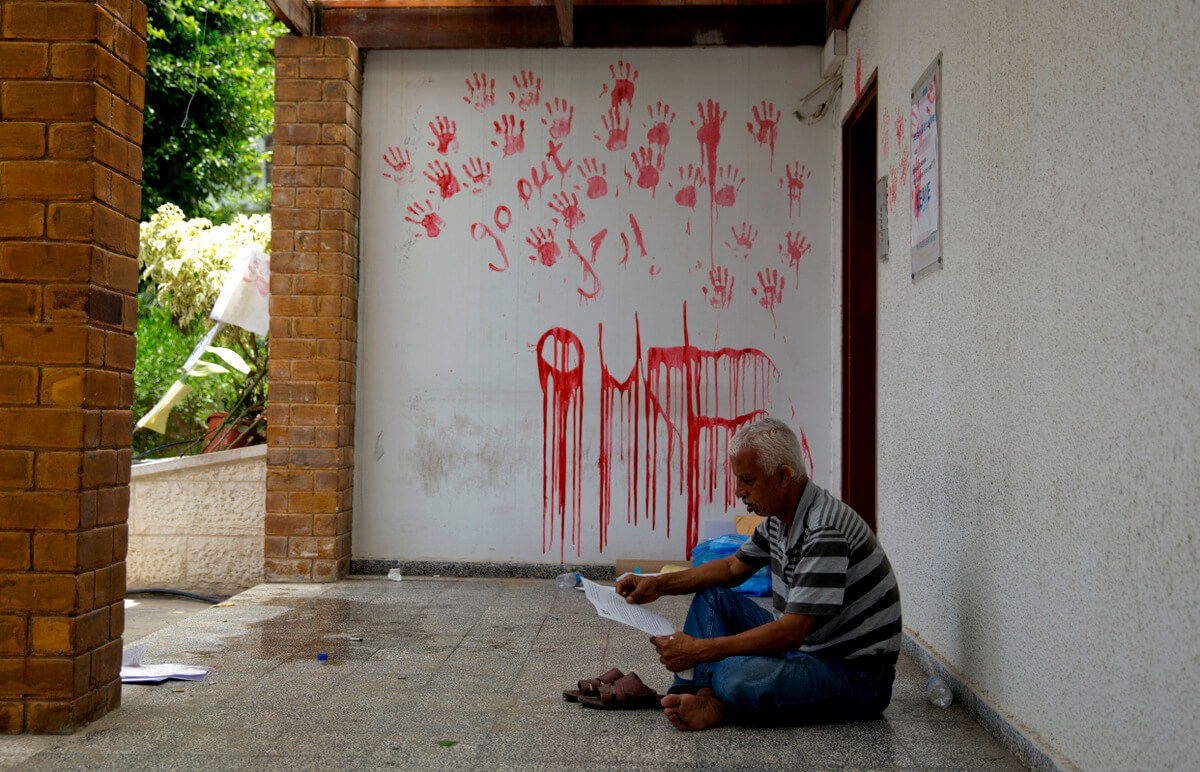
UNRWA’s decision, which seems to be the product of financial considerations, is nonetheless interpreted by many Palestinians as a politically-motivated move, owing to its timing and place of execution. Palestinians maintain that of all places where UNRWA operates, Gaza cannot be the first where such severe austerity measures should be introduced. The agony in the Gaza Strip is incalculable, especially as people have endured three wars with Israel in the past decade alone.
The new measures by UNRWA fell like a thunderbolt on refugee employees who have been dismissed, as no other opportunities for employment are available. Such measures led one of the dismissed employees, caught in despair and anguish, to try to set himself on fire in protest. Employees whose jobs were terminated have carried out an open-ended hunger strike with their families inside UNRWA headquarters.
Hopelessness and frustration: the breeding ground for extremism
Especially in a troubled area like the Middle East, the many crises that have developed over the years have contributed to the deepening of extremist tendencies among some groups and organizations.
By all accounts, the displacement of many refugees in the most recent conflicts during the past few years has widened the base of radicalization in the region. Radicalization becomes inevitable during times of total despair and profound frustration unless alternative creative, innovative solutions are introduced — i.e., unless some robust, systematic international programs of aid to alleviate the suffering of the refugees and to replace despair with hope are instituted.
In essence, radicalization of individuals can be viewed as a factor that leads to abnormalizing the behavior of those who fall victims to this tendency. More broadly, when radicalization spreads in a group or community, it can deform the social structure and lead to behavior that lacks balance — this may be called “the imbalancing” of communities. Creative and innovative policies are required to tackle the underlying root causes of radicalization.
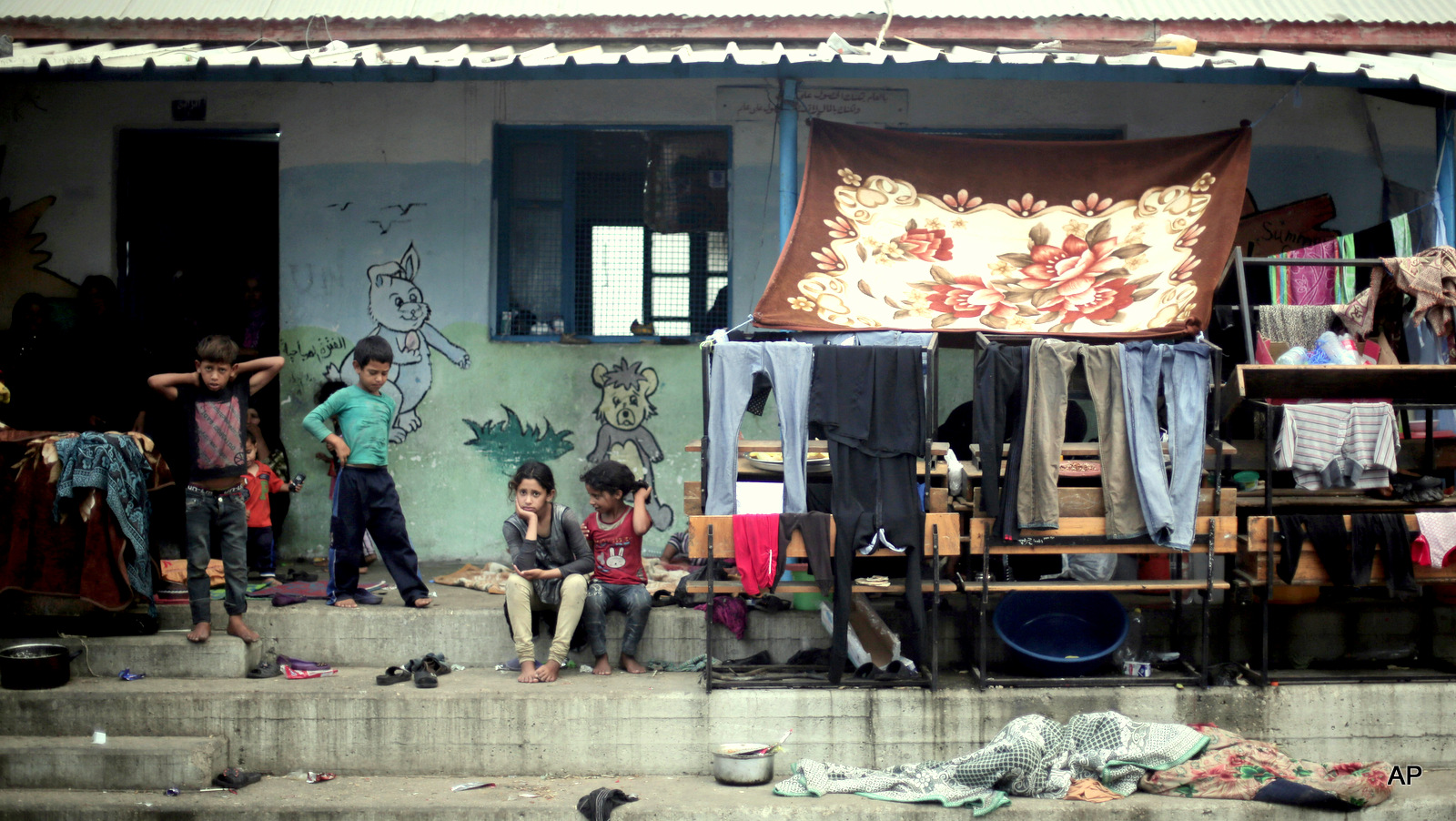
UNRWA’s measures of cutting its services and dismissing close to 10 percent of its Palestinian workforce in Gaza are bound to hamper the educational process for hundreds of thousands of students, especially as other Palestinian employees in other locations feel quite vulnerable and may, as a result, resort to protesting such measures. In effect, the learning process of Palestinian students will be impacted and their educational rights violated.
The implications of violating the educational rights of refugees cannot be overlooked. Radicalization usually finds its way among disgruntled and frustrated young people, those who believe that their future offers them nothing more than despair and anguish. The Gaza Strip has been in a state of war and under total siege for many years — thus, to begin with, services are limited if provided at all. Dismissing of employees in the thousands by the organization in whose name and for whom it was created adds insult to injury, as it threatens the very livelihood of tens of thousands of people, when accounting for the members of the families of those who are dismissed and whom they support.
An impact that rolls on into a darkened future
Wars, especially when compounded by chronic despair and frustration, usually affect societies both in the present and the future: while present effects might be measurable, those that might occur in the future are often accompanied by surprise. With the continuation of such measures by UNRWA, entire generations may be expected to be kept without formal education. These may be easily subjected to some kind of informal, unstructured education — i.e., indoctrination and radicalized mobilization by a number of organizations that generally thrive in an environment of chaos and anarchy.
Some scholars have studied the interplay between radicalization and feelings of deprivation. For example, Fathali M. Moghaddam (2005) has stressed the need for education to nurture feelings of tolerance and equality among different groups. Ervin Staub (2007) has focused on preventive measures against radicalization, mainly through teaching, learning and education. More recently, however, Kartika Bhatia and Hafez Ghanem (2017) drew the link between the decline in education, rise of unemployment and empowerment of radicalization.
By writing this article, the author hopes to shed light on such an important underlying problem faced by Palestinian refugees. Coming to terms with this problem now, policy-makers and strategists can avert crucial problems in the future, mainly the deepening of frustration and the potential rise of radicalization in the region.
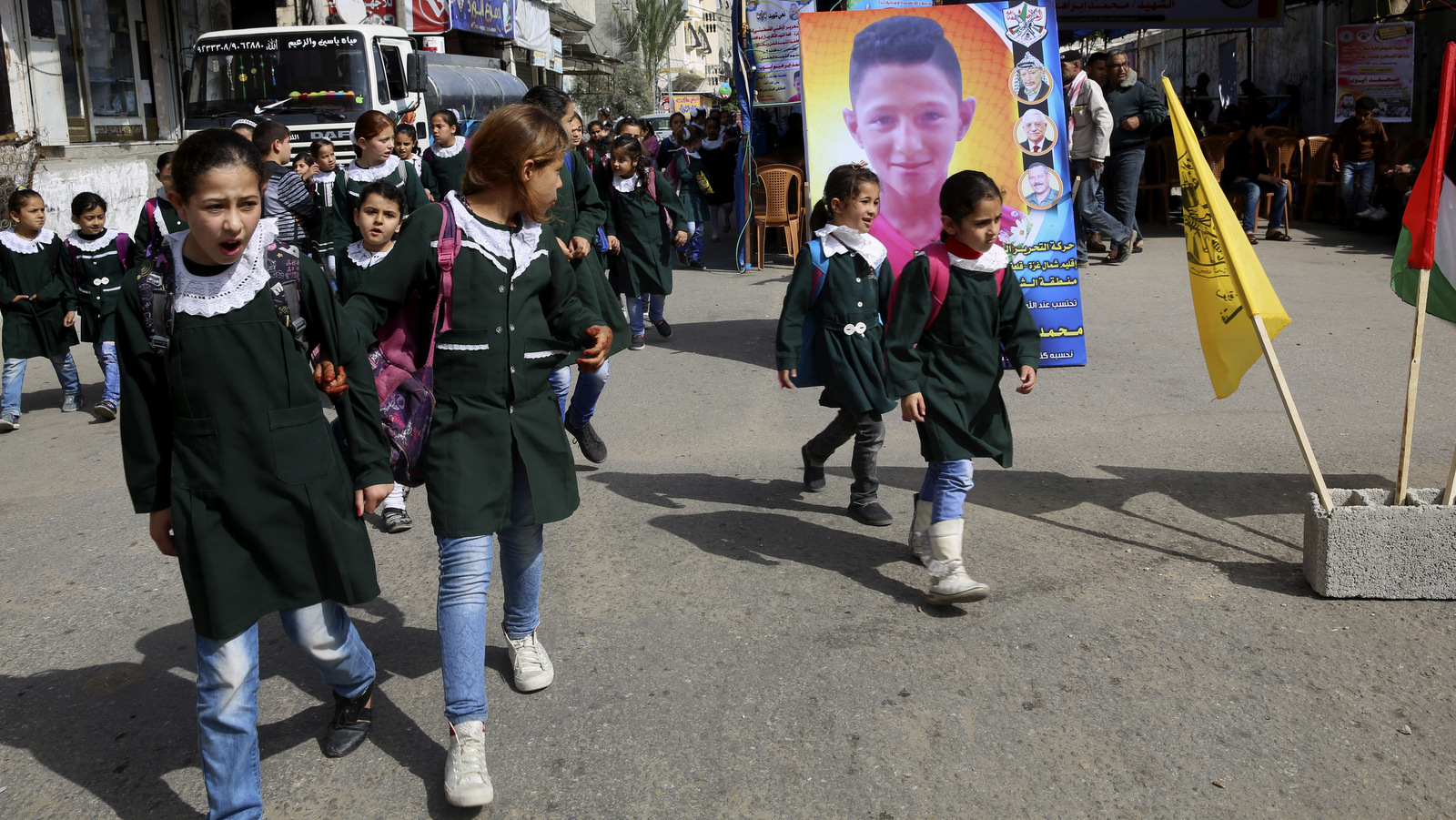
The recent waves of hundreds of thousands of refugees flooding a number of European countries could have been averted with sound, foresighted policies. In writing this article, the author is motivated by the sense of urgency to highlight the ramifications of the ferocious assault of displacement on the rights of the refugees, particularly those pertaining to education. At the same time, the author is also motivated by his own background as a Palestinian refugee who was born and grew up in a refugee camp, Dheisheh near Bethlehem: every time I read about the plight and the agony of new refugees, I cannot help reflecting on my own upbringing and observation of the effect of deprivation on the lives of so many people around me.
Palestinian refugees have been subjected to serious injustice everywhere they went. UNRWA’s recent measures of reducing the already modest services it provides to the refugees, and its termination of thousands of jobs solely for Palestinian employees, raise a number of compelling moral and legal questions. The international community is responsible for the catastrophe endured by Palestinians. Thus, even if the United States under Trump resorts to punitive financial measures to achieve political ends, the world community should not allow UNRWA to crumble. Cutting services and dismissing Palestinian employees from their jobs is not the answer, nor is it the solution to the worsening financial problem.
Constructive reforms, not drastic and destructive cuts, are needed
A comprehensive assessment of UNRWA’s structure needs to be carried out, as its bureaucracy has massively expanded. It is a well-documented fact that the average salary of a foreign employee in UNRWA is about 10 times that of a Palestinian employee. UNRWA was created to serve Palestinian refugees and to employ them, as its mandate stipulates.
Attempts by the U.S. Congress to redefine the refugee status for Palestinians — i.e., to exclude all descendants from the current UNRWA definition of Palestinian refugees — aim at liquidating the problem of those refugees in time by dissolving UNRWA. The specific goal is to limit the definition to fewer than 40,000 Palestinian refugees, rather than the current 5.3 million. The calculation is that even the new limited number will further shrink, as elderly refugees will die and the definition will not apply to their descendants.
This can only exacerbate the already fragile security environment in the Middle East. Such attempts stem from many concerted efforts by Israel and its lobbying groups in the U.S. to influence American decision-makers. For example, in its annual conference in the last week of July, CUFI, Christians United For Israel in the United States, an organization that has become synonymous with AIPAC, lobbied members of Congress for redefining the status of Palestinian refugees. This is quite short-sighted, as it completely evades the political, legal and humanitarian consequences of this action. From a cost-benefit analysis, securing the necessary funds for UNRWA to maintain its operations, and actually to enhance them, is less costly than having to deal with increasing instability, deepening frustration and the resultant growing radicalization.
The High Commissioner of UNRWA, Pierre Krahenbuhl, has reflected an excellent understanding of the potential ramifications of cutting services and terminating jobs for Palestinian refugees. In a number of interviews he gave to the media, especially after Trump announced that he will be reducing U.S. contributions to UNRWA’s budget, Krahenbuhl clearly spoke of the impending radicalization among young refugees. Therefore, it is inconceivable to allow the dissolution of UNRWA to happen under his supervision. This stands in total contradiction with the reputable record he has.
6- #UNRWA CG @PKraehenbuehl: “The reduced contribution also impacts regional security at a time when the #MiddleEast faces multiple risks and threats, notably that of further radicalization.” #FundUNRWA https://t.co/sC7d7cPgVB
— UNRWA (@UNRWA) January 17, 2018
With a comprehensive assessment, serious reform, and reliance on more skilled Palestinian expertise, UNRWA can be enabled to cross this threshold and continue to fulfill its humanitarian mission. Sadly, the Palestinian problem is not over, and no just settlement for the refugees has been achieved. Therefore, the outcry of Palestinian refugees should be heard at the highest level of decision-making in the UN, including that of the office of the Secretary-General himself, Antonio Guterres.
This is the time to heed the call for human justice and dignity for Palestine’s refugees. This is the time when perspicacity should override narrow political considerations. This is the time to prevent more seeds of radicalization from being planted.
Top Photo | A wall painting made by Palestinian employees is seen at the United Nations agency for Palestinian refugees (UNRWA) headquarters in Gaza City. July 25,2018. UNWRA staff were protesting the agency’s decision to fire dozens of Palestinian staff in Gaza in the Gaza Strip. Khalil Hamra | AP
Hisham H. Ahmed, Ph.D. was Chair of the Academic Senate and Chair of the Politics Department at Saint Mary’s College of California, he was a Fulbright scholar in Palestine, where he wrote his book: From Religious Salvation to political transformation: the rise of Hamas in Palestinian Society. Ahmed is the author of numerous studies dealing with the Middle East. Ahmed is frequently called upon by the local and international media for analyses of various political issues pertaining to the Palestinian-Israeli conflict.


